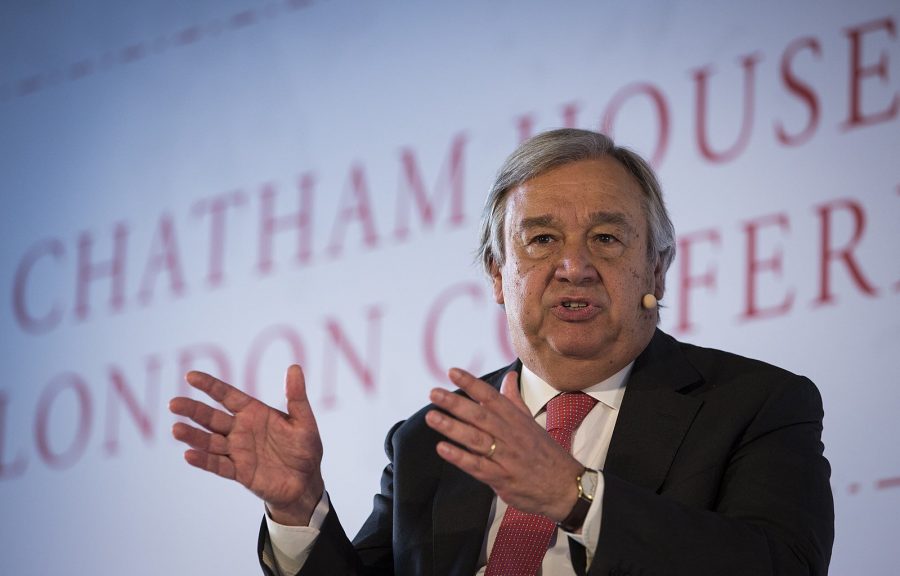UN Secretary General issues ominous warning on climate change
December 11, 2020
United Nations Secretary-General António Guterres issued a threatening warning on climate change, with the message that nature needs to be restored immediately and that humans are at the root of its catastrophe.
“Humanity is waging war on nature. This is suicidal. Nature always strikes back — and it is already doing so with growing force and fury,” Guterres said in the address delivered at Columbia University on Dec. 2.
His message follows a year that’s been full of unprecedented global issues, which he posed frankly in the address.
“We are facing a devastating pandemic, new heights of global heating, new lows of ecological degradation and new setbacks in our work towards global goals for more equitable, inclusive and sustainable development,” Guterres said.
In his address, Guterres listed the most pressing climate concerns: the collapse of biodiversity, disappearance of ecosystems, spread of deserts, loss of forests, plastic waste in oceans, dying coral reefs, air and water population and that 75% of new human infectious diseases are zoonotic.
On the same day as the address, two new reports from the World Meteorological Organization and the United Nations Environment Programme were released.
The World Meteorological Organization’s annual climate report showed that the global mean temperature in 2020 is on track to be one of the three warmest on record despite developing La Niña conditions, which are episodes of below-average sea surface temperatures.
Also warming up are oceans with 82% of the ocean experiencing at least one marine heatwave, which endangers marine life and the communities that survive on it.
When oceans become warmer, its volume increases and with the melting of Greenland and glaciers all over the world, sea levels have risen.
Guterres described apocalyptic fires and floods, cyclones and hurricanes as “the new normal.” The 30 storms of the record-breaking North Atlantic hurricane season provide evidence of these dangerous consequences.
Even with COVID-19 lockdowns carbon dioxide levels are still rising and hitting record highs.
“In 2019, carbon dioxide levels reached 148% of pre-industrial levels. In 2020, the upward trend has continued despite the pandemic. Methane soared even higher — to 260%. Nitrous oxide, a powerful greenhouse gas but also a gas that harms the ozone layer, has escalated by 123% … Meanwhile, climate policies have yet to rise to the challenge,” Guterres said.
Whether or not it is too late to change the environment’s current state is solely based on how humans act toward fixing it, specifically after the COVID-19 pandemic.
“Making peace with nature is the defining task of the 21st century. It must be the top, top priority for everyone, everywhere. In this context, the recovery from the pandemic is an opportunity,” Guterres said.
This generation can contribute to helping the planet by flicking the “green switch.” This means relying on a sustainable economy driven by renewable energies that’ll create a cleaner and healthier future.
“An inclusive world will help ensure that people can enjoy better health and the full respect of their human rights, and live with dignity on a healthy planet. COVID recovery and our planet’s repair must be the two sides of the same coin,” Guterres said.








